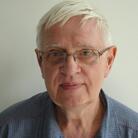Invited Speaker

Tadeusz Czachorski
Professor, Institute of Theoretical and Applied Informatics, Polish Academy of Sciences, PolandSpeech Title: Modelling dynamics of energy consumption in batteries of autonomous (IoT nodes, UAVs) devices
Abstract: The complexity of battery-powered autonomous devices such as Internet of Things nodes or Unmanned Aerial Vehicles, and the necessity to ensure an acceptable quality of service, reliability, and security, have significantly increased their energy demand. Batteries become an important part of any autonomous device and therefore their performance should be carefully modeled. In this presentation, we discuss a model where a battery energy content is represented by a diffusion process. The model takes into account energy harvesting; the energy is represented by unitary energy packets that come to the system, are queued, and then consumed. Both the arrivals and consumption are probabilistic and the battery is represented by G/G/1/B queueing system; the number of energy packets in the queue represents the energy in the battery.
The transient solution of such a model gives us the distribution of energy, as well as the probability that the battery is empty or full as a function of time. The introduction of the first passage time inside a diffusion process enables us to determine time-dependent probability density functions of
- time remaining until the battery becomes empty,
- time required to charge the battery to its total capacity,
- time the battery is operational between two moments of complete depletion.
The use of the diffusion process makes the model more precise than frequently used Poisson or fluid-flow models.In special cases, when interarrival times and the time needed to consume one energy packet are exponentially distributed, we compare the results of diffusion approximation with corresponding models based on continuous-time Markov chains and find that the errors introduced by the diffusion approximation are really small.
Biography: Tadeusz Czachorski received M.Sc., Ph.D., D.Sc. degrees in informatics respectively in 1972, 1979, 1988, and professor title in 1999. Currently he is a professor at the Silesian University of Technology (Division of Computer Systems Theory and Design) and the director of the Institute of Theoretical and Applied Informatics of Polish Academy of Sciences, IITiS PAN, Gliwice. He spent more than five years at several French universities and research institutes (IRISA Rennes, University of Versailles, ISEM Orsay Paris-Sud, Paris-Nord, National Institute of Telecommunication) and still maintains scientific cooperation with these centres. He participated in Next Generation Internet European project concerning such issues as multiservice-multimedia, mobility, services convergence, quality of service and variable connectivity, where he was co-responsible for the work package concerning analytical, numerical and simulation methods to model performance of the Internet. He took part in Future Internet Engineering project and currently his institute coordinates a European project H2020 on safe and secure Internet of Things. He is a member of programme committees of some periodic international and national conferences, e.g. Heterogeneous Networks HET-NETS, European Workshop on Performance Engineering EPEW, Polish Teletraffic Symposium, Computer Networks, Internet in the Information Society. In 1990 - 2007 he was scientific secretary of the Committee of Informatics of Polish Academy of Sciences, 2007 - 2011 vice-president of this committee, currently member of presidium and head of the section of computer networks and distributed systems of the committee. Chair of IFIP Technical Committee TC5 "Information Technology and Applications" and member of IFIP General Assembly. His scientific interests include mathematical methods and software related to modelling and performance evaluation of wide area computer networks, especially the Internet. The methods include Markov chains, diffusion approximation and fluid flow approximation. They are used to study quality of service, traffic control mechanisms and related problems.
